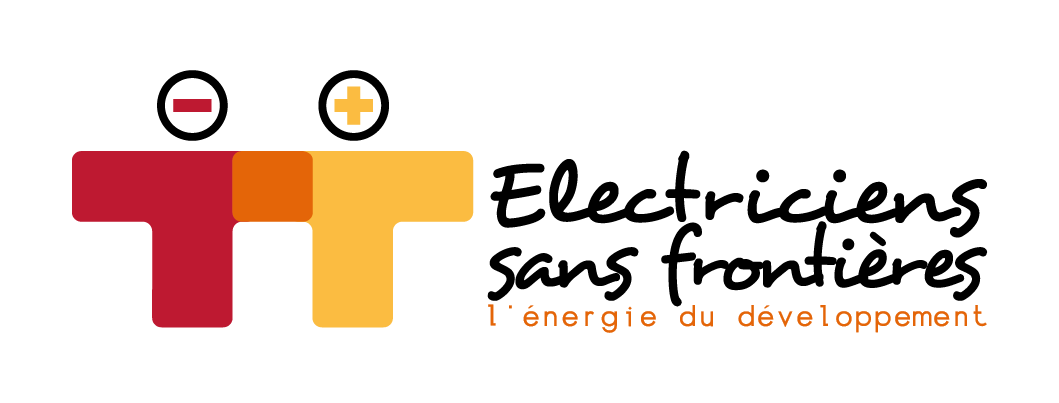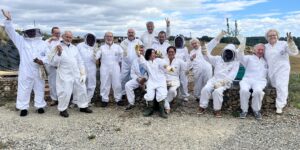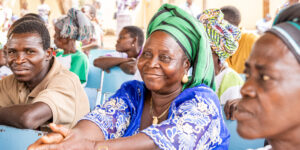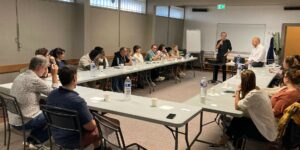For one year now, faced with with this major sanitary COVID crisis, we have been living in a world of lockdowns, curfews, tests, remore work, border closures and contact tracking.
As of 2nd March 2020, we have limited our on-site missions and gatherings in France, both for our volunteers and staff. We have started organizing ourselves, taking into account the evolution of the pandemic and official instructions, in order to enable our work to continue as well as to avoid a double impact on our local partners and beneficiaries of our projects, beyond COVID.
Project teams have worked on « plans B » (ou alternative plans) to carry out ongoing projects thanks to remote means of intervention, as we have been doing for long when intervening in red areas. Indeed, in regions where conflicts or terrorism do not allow for onsite intervention, we either train remotely local electricians, or we accompany our partners remotely thanks to numeric tolls. We have also kept on examining the numerous requests we keep receiving in order to bring electricity and water where needed.
Thus, for one year, Electriciens sans frontières’ teams have been continuing their actions remotely, relying on a reinforced and adjusted preparation and on a mutual trust with our suppliers and local partners.
The activity of Electriciens sans frontières in 2020 was dense in comparison with what has been done in the past years. More than forty projects have been completed or have a turning point, for example the electrification of a high school in Benin, the electrification of a surgical center, a school, a high school and a medical center, as well as the construction of a water tower and of standpipes in Guinea, the deployment of 12 solar lamp post and of a PV plant in Nepal, the construction of 6 latrines, the access to water in 4 villages and the electrification of a clinic in Togo , the electrification and access to water of a medical center in the Democratic Republic of Congo, the electrification of 3 villages, of a high school, of a training center and of teachers’ homes, the renovation of a bore hole, the installation of charging plants for individual lamps and the electrification of 2 medical centers in Burkina-Faso, the electrification of a medical center, of 5 buildings within a school and the connection of a high school in Senegal, and finally the completion of the deployment of « Cafés Lumière » in 6 villages in Madagascar.
At the request and with the support of the Crisis Center of French Ministry for Foreign Affairs, two missions have been carried out during the year. One in Beirut after the big blast in the harbour on 4th August 2020, the other in Yerevan further to the conflict in Nagorno-Karabach. Almost one million Euros was mobilized for our « COVID plan », set up with our local partners. Beyond the thousand solar lamps sent as soon as possible in about a hundred medical centers, we are now completing the last orders to reinforce the electrical systems of about 50 healthcare centers mainly in Togo and Burkina-Faso. « Plans B » have proven efficient and enabled maintaining our activity of access to energy and water to a level comparable to the last years. Many of our partners have been innovative to face the pandemic, be it for producing soap or sewing masks.
Solar plants for schools in Beirut, solar pumping in Gulmu in Burkina Faso, installation of « Cafés Lumière » in Benin, supply of solar kits in Rohingyas refugee camps: more than a hundred projects are ongoing and bring every day some light to the most disadvantaged. 2021 is already a special year. Carrying out projects remotely will go on for some long months before we are able to physically reconnect with our partners to complete what could not be done remotely. We should also capitalise on these new ways to do things, in order to do more and better in terms of knowledge transfer and its valuation at the service of access to energy.
We miss the face-to-face exchanges and the intense associative life we pay a close attention to. But the mobilization of our volunteers, partners and donors is still there!



